BHS has been placed into liquidation following pressure from the Pension Protection Fund, which argued that closing down the business would produce the best outcome for the failed retailer’s pensioners.
It also emerged that lawyers picking over the carcass of the BHS collapse are looking at the validity of a £35m floating charge held in the name of former owner Sir Phillip Green. This ranks Green as a secured creditor of BHS and entitles him to get all his money back from the administration proceeds.
Duff & Phelps, one of BHS’s joint administrators until this week, had already judged Green’s claim to be valid. But it is thought that lawyers working for FRP Advisory, which is now in sole charge of the liquidation process, had demanded that the sum be returned from an escrow account at Green’s legal firm.
The PPF, a government-backed lifeboat for troubled pension schemes, is the company’s biggest creditor and had rowed with Duff & Phelps over the next step for the failed business. In the summer it pressed for FRP Advisory’s appointment after it was argued that Duff & Phelps was too close to Green. Duff & Phelps were accused of being the retail tycoon’s “ponies” by Dominic Chappell, the former bankrupt who bought BHS for £1 in 2015.
Labour MP Frank Field, who has locked horns with Green over BHS’s fate, said liquidation – where a company’s remaining assets are sold off – offered the best chance of recovering cash for the collapsed retailer’s pension scheme. BHS’s scheme had a deficit of as much as £571m at the time of the retailer’s collapse in April this year.
“This is another milestone in the collapse of BHS that Sir Philip Green sailed away from,” said Field. “At this stage, though, it is welcome. It gives the PPF’s preferred administrator – rather than Sir Philip’s – the best chance of salvaging some money for the pension schemes.”
The administrators’ duties include scrutinising the actions of BHS’s former directors. However it is understood that, seven months on from BHS’s collapse, this investigatory work, which would provide the basis for any legal action to recover funds, is not yet at an advanced stage. The administrators’ report reveals that forensic accountants and lawyers are wading through 4,000 boxes of hard copy records and nearly 200 terabytes of data from BHS’s servers and company laptops.
“We believe the liquidation is the right way to secure the best possible recovery for the pension schemes and other creditors of the insolvent company,” said Malcolm Weir, head of restructuring and insolvency at the PPF. “The liquidator will now be able to progress all remaining issues, including the leases and the ongoing investigatory work.”
As liquidators FRP Advisory have more power to take decisions, including handing back stores to landlords, and in doing so, mitigating the rent that can be claimed out of the general pot for creditors. Even though all BHS stores are empty the company remains liable for monthly rental payments.
At present BHS’s unsecured creditors have been told to expect a maximum of 8p in the pound from the sale of BHS’s assets.
“We will be continuing our process of making recoveries through liquidation on behalf of all creditors and continuing with our statutory duties,” said a spokesman for FRP Advisory.
A parliamentary investigation into the demise of the retailer found that BHS had been systematically plundered under its former owners Green and Dominic Chappell. Green, his family and other BHS shareholders collected at least £580m from the retailer, while Chappell’s company Retail Acquisitions was paid an estimated £17m.
The Topshop owner is still in talks with the Pension Regulator over how to resolve the shortfall in the BHS pension fund. Last month its chief executive, Lesley Titcomb, told MPs that Green’s assets, including his £100m superyacht, could be seized by the courts if he refuses to comply with a legal demand to cover the £571m deficit.
Titcomb told the work and pensions select committee a court would determine how to raise funds from the billionaire tycoon, including possible seizure of assets, if he does not pay up when a legal demand is issued, or reach a settlement with the regulator.


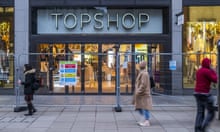
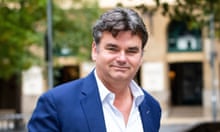
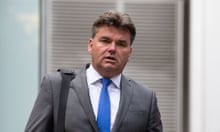
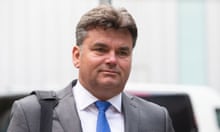

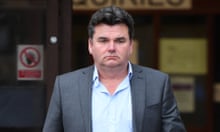
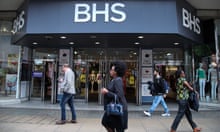

Comments (…)
Sign in or create your Guardian account to join the discussion